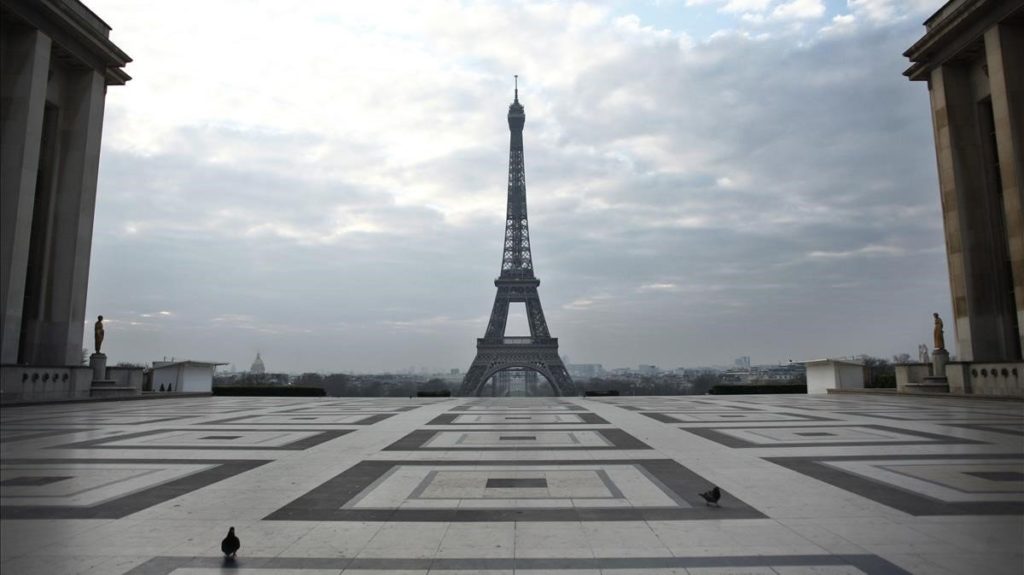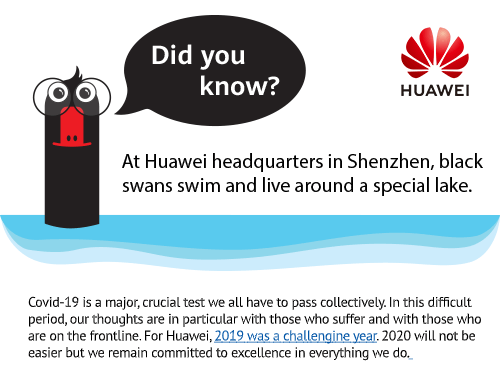BRUSSELS BEHIND THE SCENES
Weekly analysis and untold stories
With SAMUEL STOLTON
Other Brussels behind the scenes stories:
Coronavirus in Europe's last dictatorship
What the hell happened to Viktor Orbán
Europe: An unpeopled world, a silent beauty
Brussels is not a city of solitude
Who wins from the Coronavirus blame game?
Only a month ago, France’s President Macron declared that the global population is at war with the coronavirus. Recent comments of his however suggest that now, rather than the disease itself, he is setting his eyes on the country from which the virus originated.
Speaking to the Financial Times last week, Macron said that is was naive to think that China had dealt with the situation better than Europe. “There are clearly things that have happened that we don’t know about,” he said - a truism from whichever way you interpret it.
Sent out every Friday afternoon, BRUSSELS BEHIND THE SCENES brings the untold stories about the characters driving the policies affecting our lives. Analysis not found anywhere else, The Brussels Times' Samuel Stolton helps you make sense of what is happening in Brussels.
If you want to receive Brussels behind the scenes straight to your inbox every Friday, subscribe to the newsletter here.
Elsewhere, Lu Shaye, Chinese Ambassador to France described the close friendship between France and China, but hit out at “discordant remarks” by some in the country.
After weeks of being doused in the spirits of altruism, it seems now that the geopolitics of blame are set to determine how the world is able to disentangle itself from the coronavirus imbroglio, much more than any socio-economic strategy could ever purport do.
Tragically in a predictable turn of events, US President Trump also turned the cards on the World Health Organisation this week, accusing them of mismanaging the crisis and covering up the spread of the virus. Trump said that the US would be putting a halt to its funding of the WHO. Dr. Mike Ryan, executive director of the WHO's Health Emergencies Programme, responded by saying that the world had been alerted to the risks on January 5th.
In Brussels, however, the blame game narrative hasn’t quite started to take hold yet – at least in term of external affairs, with the European Commission still abiding by the ‘global solutions to global problems’ line. However, this could simply be down to a reticence on the part of the executive to engage in global power-play politics – something that it has heretofore demonstrated with striking competence - consistently exposing its feebleness in engaging robustly in foreign policy matters.
However, this sense of communicative restraint in terms of moulding COVID-19 into some sort of a geopolitical rough-and-tumble, does have its virtues.
While certain EU leaders engage in this political horseplay, the Commission is coming across as the level-headed voice of reason amid the ever-maddening tides of discontent. I imagine such vitriol is misdirected anyway: the future economic fallout from the crisis is no doubt playing on the minds of national governments, with an air of disquietude for the protection of their own seats in power.
BRUSSELS BEHIND THE SCENES POWERED THIS WEEK BY
That being said, one country that will emerge with an improved profile politically and socially, is Germany. Recent polls suggest that the Große Koalition has recently charted a surge in public support since the turn of the year, with increases both registered for the Christian democratic alliance and the Social Democrats.
The country’s death rate from the coronavirus has been comparatively low compared with other European countries: From 140,000 confirmed cases the country has recorded just over 4,000 deaths – compare that with the UK, that has nearly 14,000 deaths from just over 100,000 cases. Many have put Germany’s lower death rate down to the country’s decision to conduct mass-scale testing, as well as its voluminous stock of ventilators. Last month, the Government adopted a stimulus package to the tune of €750bn.
Speaking earlier this week, with the adroitness and diligence of the research scientist as she once was, German Chancellor Angela Merkel explained to reporters how small the margin of error is with regards to the strictness of the confinement measures. A decimal point in the wrong direction in terms of the infection rate, and Germany’s public health system could be brought to its knees months in advance, Merkel said.
In July, Germany assumes its role as Presidency of the Council of the EU, and, at a time in which Merkel had been planning a gradual wind-down in her illustrious political career – her leadership in Europe becomes more important than ever.
In the European Parliament yesterday, Merkel’s compatriot Commission President von der Leyen once again floated the idea of a Marshall Plan for Europe financed by the bloc’s long-term budget. This comes after the Germans in the Council stood against the idea of aiding more cash-strapped nations in Europe by issuing bonds financed by mutualised debt.
On Thursday, Macron made the case for Germany to show more solidarity with the harder-up EU nations. While the geopolitical blame game continues, Merkel will be granted an opportunity in July to lead from the front at a critical time in Europe’s recovery.
With France locking horns with China at the current time, how Merkel negotiates political relations with global partners will be crucial in the continent’s capacity to rebound economically from the crisis. The EU-China summit in Leipzig, Germany, hosted by Merkel under the Presidency of the German Council and attended by China’s President Xi Jinping, is still scheduled to take place in September.
Sent out every Friday afternoon, BRUSSELS BEHIND THE SCENES brings the untold stories about the characters driving the policies affecting our lives. Analysis not found anywhere else, The Brussels Times' Samuel Stolton helps you make sense of what is happening in Brussels.
If you want to receive Brussels behind the scenes straight to your inbox every Friday, subscribe to the newsletter here.


